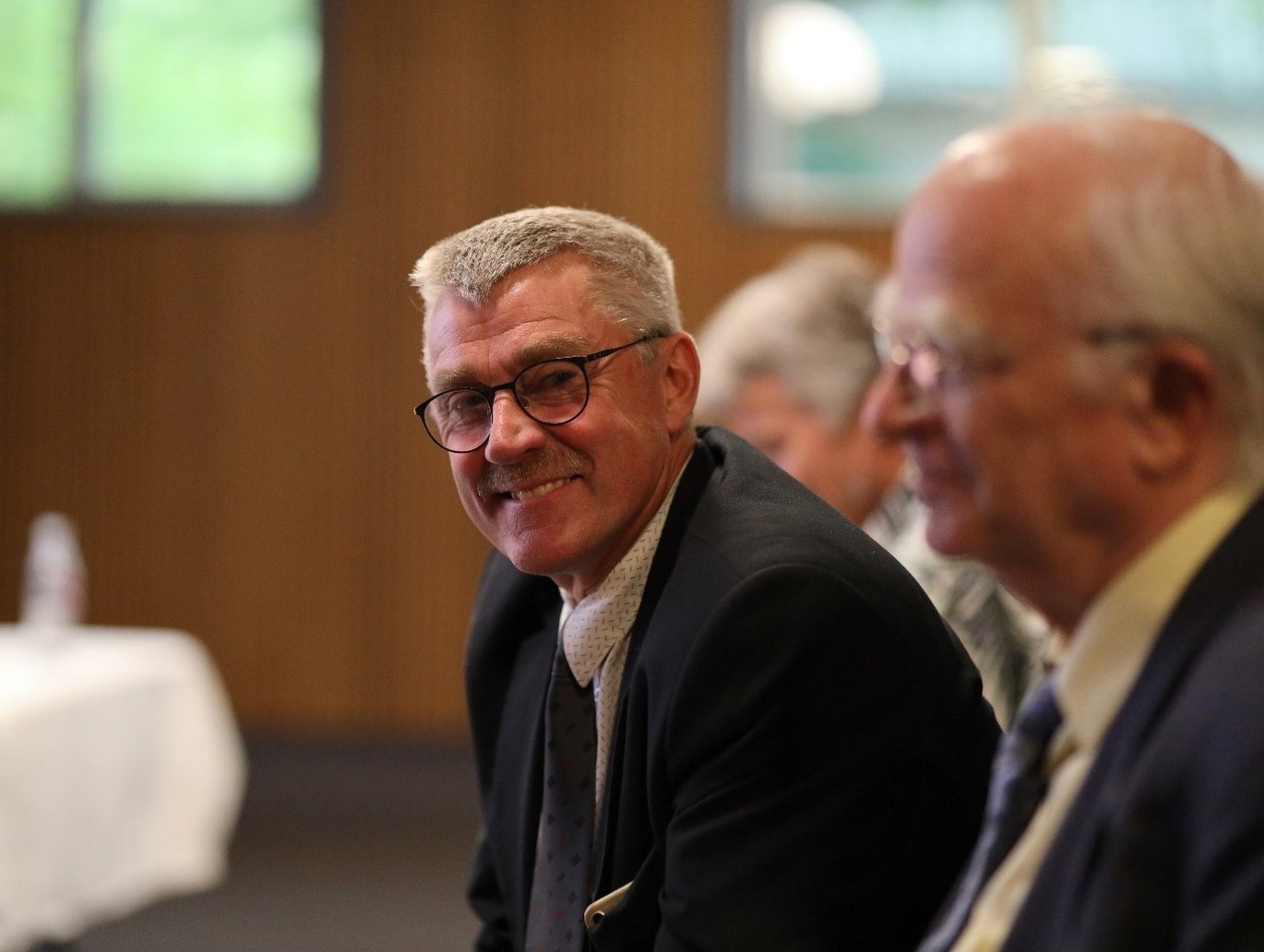Newly qualified doctor aims at a sustainable future for hunting and wildlife management
Niels Kanstrup wants to steer hunting and wildlife management towards a sustainable, lead-free future. A 35-year career as an advisor, researcher and active hunter, and a lifelong passion for nature, recently culminated in his defence of his doctoral dissertation at the Department of Ecoscience at Aarhus University.

On Monday, 10 October 2022, Niels Kanstrup defended his doctoral dissertation surrounded by colleagues, friends and family. His dissertation is the result of life-long work and a passion for nature, hunting and wildlife biology. The dissertation focuses on demonstrating the serious consequences of using lead ammunition in hunting, but it also demonstrates how the transition to lead-free ammunition could be organised. A transition that is both possible and necessary according to the newly appointed doctor.
Broad academic knowledge
Niels Kanstrup is employed as a wildlife biologist at the Department of Ecoscience, and he can now write dr.techn after his name. Although he studied biology at Aarhus University, much of his later career and experience stems from the world outside the yellow walls of the university, and he has spent a lot of time in the field with hunters.
"I'm an active hunter, and a big part of my motivation for this dissertation has been my great passion for wildlife and hunting," says Niels Kanstrup.
Wants to break down silos
Niels Kanstrup returned to work at the university five or six years ago. He has published papers that, together with a synthesis, constitute the scientific part of his dissertation. A long career has given him broad experience in several specialist fields. Technical aspects have filled much of his time, but he has also worked with policy and legislation, and in particular hunters' reactions to the legislation. Furthermore, a more socio-economic approach to the material has also been important for Niels Kanstrup. This broad perspective is one of the strengths of the new dissertation:
"I have experience in natural sciences, technical sciences, and political and socio-economic fields, but I was well aware that none of this experience had enough depth for a doctoral dissertation. That's why my goal has been to break with silo thinking. And apparently I’ve managed to do this, because it’s actually one of the things that the assessment committee highlighted," he says.
For Niels Kanstrup, it is about breaking down silos and working across scientific disciplines, but it is also about using his extensive national and international network to contribute new research and new ideas. Without being too philosophical, he believes he takes a holistic approach to his work.
Therefore, he also hopes that his dissertation will help to develop a toolbox that moves away from silo thinking and towards a broader perspective. A toolbox and philosophy that he hopes can be transferred to other issues in society.
"It's an ambitious goal, but if this approach of uniting forces and breaking down silos works, it could be an example of how we can solve other and much greater challenges," says Niels Kanstrup.
Research or passion?
Even though Niels Kanstrup is ready to admit that the idea of a doctoral dissertation added extra adrenaline, he is driven more by his love of nature, wildlife, and hunting.
"My passion has really driven my work, otherwise I wouldn't have spent such a lot of time on it. I'm never really at work, but I'm never completely away from it," he says.
His passion means that Niels Kanstrup has continued his research, even when there has not been money to finance all his projects. This leads on to a question he has heard before: When are you a researcher, and when are you an activist?
"I've been accused of being an activist by the lead industry because they claim that I politicise the issue. Many would say that researchers should just present their knowledge and the facts, leaving it up to others to advocate a particular opinion. But I want to be able to go out and advocate my results and recommend new hunting administration policies as long as these holds water scientifically." he says.
In other words, he is not just motivated by research in itself, but also by an opportunity to leave a better world for generations to come. So even though, in principle, he is old enough to retire, he has no plans to do so right now:
"I can't stop here, that would be boring. But I’m not going to write any more dissertations," says Niels Kanstrup.
Now he wants to go out and communicate his message one-on-one with the population, and in particular with hunters, so that he can oil the process from problem to solution. He has received funding from the Danish private foundation 15. Juni Fonden, which means that he can give a large number of lectures next year, primarily in Denmark. Niels Kanstrup also hopes that his doctoral dissertation will help establish even more collaboration and perhaps trigger funding to secure a more sustainable future for not just hunting and game administration, but also for nature and the environment.
About:
Niels Kanstrup's dissertation is titled: 'The transition to non-lead ammunition: an essential and feasible prerequisite for sustainable hunting in modern society '. Read the dissertation here: https://pure.au.dk/portal/files/284678093/210528_Niels_Kanstrup_Transition_non_lead_ammunition_Dissertation.pdf
Niels got his first job in 1985, where he was employed as a biologist by a Danish hunting association. Since then, he has worked for many years in the Danish Hunters' Association, founded the Dansk Hunting Academy (Dansk Jagtakademi), and worked as an independent advisor. Since 2017, he has been affiliated with Aarhus University as an honorary associate professor and wildlife biologist. He also has extensive hunting experience in Europe, Africa and North and South America.
Niels Kanstrup lives in rural Djursland near Aarhus with his wife Anna, and he has two grown-up children.
